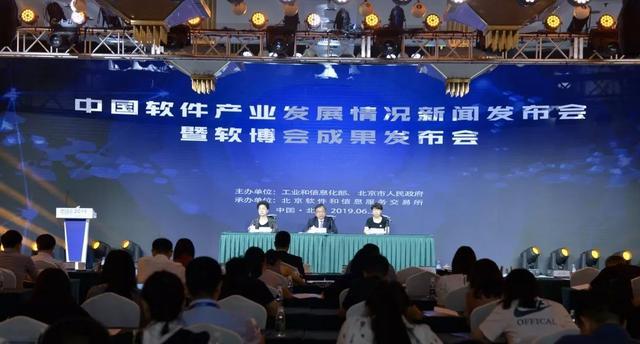

NEWS
CONTACT US
Endela Electronics (Shenzhen) Co., Ltd.
Fax: + 86 - 755 - 8524 0865
Email: wade@endela.cn
Address: Building A5, Loul Gang Blue Sky Technology Park, Songgang, Bao'an District, Shenzhen
HTC's Second Gamble on its VR Transformation
Category:
Industry News
Author:
Source:
http://www.cena.com.cn/industrynews/20210419/111514.html
Published Time:
2021-04-22
Visits:
1
Recently, HTC released a promotional image on its official Twitter account. The image shows that the VIVECON 2021 event will be held from May 11th to 12th. Wang Congqing, President of HTC Vive China, retweeted the hashtags "#XR #VR #Vive," leading many to speculate that HTC will release a VR headset aimed at the enterprise market. Can HTC, after twice betting on VR, successfully transition from the consumer market to the enterprise market?
The consumer market has become more challenging.
In 2015, HTC launched its VR product, the HTC Vive. The market response was excellent, immediately gaining popularity. In 2018, HTC sold 200,000 VR units. In the VR market, HTC's products were far ahead of Sony and Samsung in both reputation and sales.
However, the emergence of Facebook in 2018 made HTC's survival in the consumer market increasingly difficult. Facebook launched the Oculus GO, based on Google's Daydream platform, which performed well and received positive reviews. Most importantly, the price was only $199 (approximately RMB 1319), while VR headsets at the time cost between RMB 2000 and 3000.
According to IDC, this was because it could not compete with Facebook's main low-price product strategy. The report shows that in 2018, HTC's VR device shipments per unit decreased by 35%. According to HTC's financial reports, HTC's total revenue in 2020 was approximately RMB 1.33 billion, a year-on-year decrease of 42.03%, and the operating profit margin was -110%.
According to the Steam Hardware & Software Survey report in March 2021, Oculus took the lead with 60% of the market, and its leading advantage gradually expanded; while HTC barely maintained its "second place" position in the consumer market. Its share in the VR field further decreased to 16.51% (-0.73%). Among them, the original Vive's latest share was 12.24% (-0.82%); Vive Pro, Vive Cosmos, and Vive Cosmos Elite accounted for 2.27% (+0.12%), 1.02% (-0.03%), and 0.98% (-0.02%), respectively.
Valve was HTC's first VR partner. By March 2021, Valve had acquired 16% of PC VR usage on Steam, while HTC's own Vive Cosmos accounted for only 1%.
Entering the Enterprise Market
HTC seems to have been squeezed out of the consumer market and has decided to shift to the enterprise market. Zhao Yan, director of the Consumer Electronics Industry Research Office at the China Academy of Information and Communications Technology, said in an interview with a reporter from China Electronic News: "In the consumer field, VR hardware products have not yet become popular, with sales less than 10 million units. However, the application range of the enterprise market is wider, including industrial, medical, healthcare, education, commercial, and military fields, and the market prospects are broader."
Subsequently, HTC launched the Vive Pro, Vive Pro Eye, and the recent Vive Cosmos. In 2020, HTC launched three Vive Cosmos derivative products: the Vive Cosmos base version, the Vive Cosmos XR version, and the Vive Cosmos Elite kit.
The Vive Cosmos XR version introduced a high-definition XR stereoscopic see-through camera for the first time. Through the Cosmos' XR panel, it achieves high-definition real-person image acquisition and three-dimensional space reconstruction, making the real world and the virtual world appear more seamlessly connected. It can also provide users with VR conferencing services, combining virtual participant roles and virtual objects with real-world scenes, providing enterprises with new collaboration options.
When discussing the differences between the needs of business users and consumer users, Wang Congqing, president of HTC China, told a reporter from China Electronic News: "For consumer users, the price of the product and the number of top-tier supported games are key decision-making criteria. For enterprises, there is usually a long bidding and evaluation cycle, including project trials, budget planning, how to integrate into existing management systems, developing customized applications that meet the needs of the enterprise, and whether long-term follow-up services and sales support can be provided."
"Enterprises value many aspects, such as product quality, user experience, product durability, long-term comfort, ability to meet practical application cases, manageability, compatibility with existing systems/tools/content, supplier brand reliability, after-sales support capabilities, product supply capabilities, and data security." said Wang Congqing.
To this end, HTC established a new business unit called Vive Enterprise Solutions, dedicated to the enterprise VR market. The new department provides comprehensive enterprise-centric VR solutions, including software, hardware services, and support, providing enterprise VR solutions.
Unlike its previous focus solely on the integration of software and hardware, HTC has redefined itself, expanding from content creation and platform building to high-value-added services for enterprise VR integrated solutions, providing partner companies with a complete ecosystem.
Recently, HTC also partnered with manufacturing solution provider Lattice to launch a 3D visualization solution based on the Vive Focus Plus standalone device. It is understood that Lattice plans to use this solution in manufacturing scenarios such as product assembly. Lattice combines XVL Studio technology with Vive's commercial remote rendering solution and runs 3D visualization programs through the Vive Focus Plus standalone device, allowing engineers and enterprise users to view 3D designs in a more three-dimensional VR space, achieving a transition from 2D to 3D stereoscopic images, with faster and more timely preview switching.
But is HTC really going to exit the consumer market? The answer, as Wang Congqing told reporters, is: "Both the consumer market and the enterprise market are extremely important markets for HTC's long-term success." "I believe HTC will continue to focus on technological research and development and progress to meet the different needs of these two types of customers. How HTC will position itself in the virtual reality industry will be revealed on May 11th."
Keywords:
HTC, Vive, VR, enterprise, market, Cosmos, product, solutions, users





